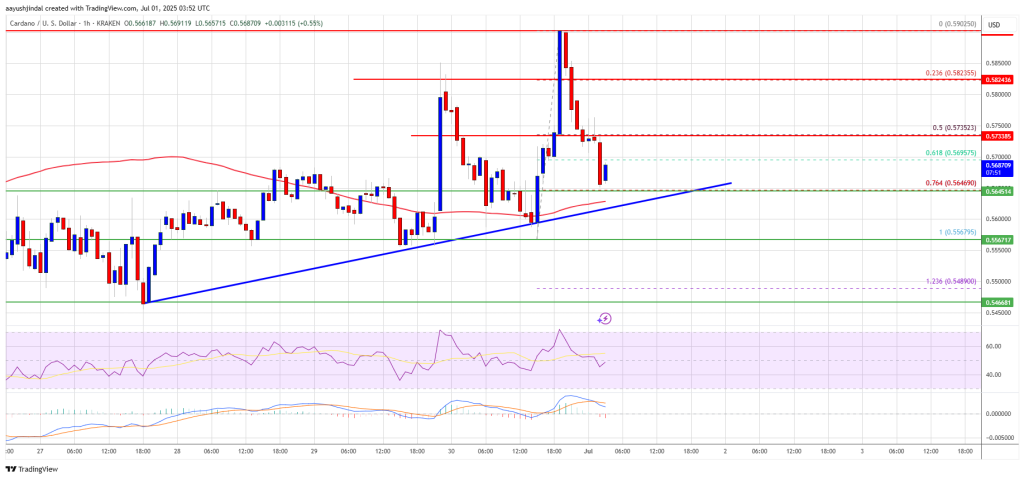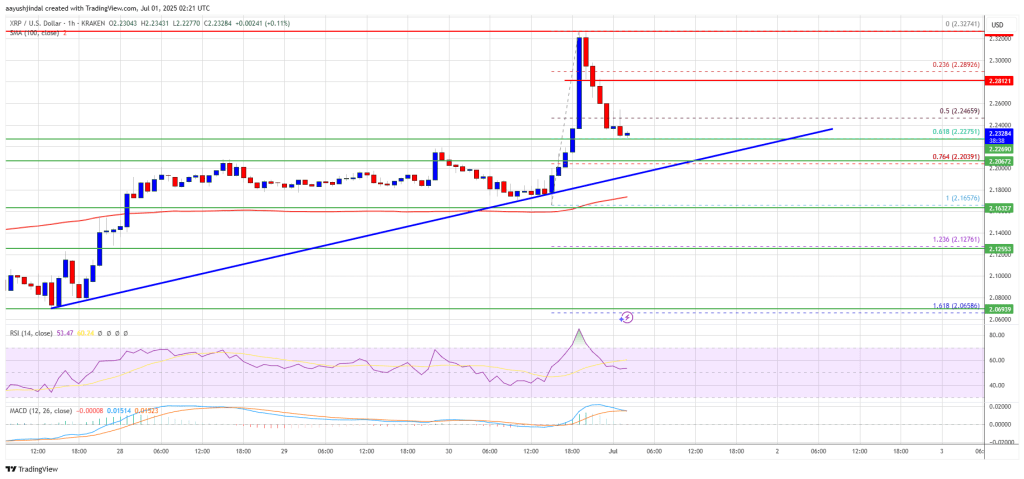
Yield farming is an investment strategy for the DeFi market : TechnoCast with Tilmar
Tilmar Wilhelm Goos, former Cardano and SEBA Bank Switzerland. Ph.D. Researcher specializing in Accounting and Data Science at the Universidade do Minho in Portugal and Senior Business Analyst Blockchain at Bank Frick in Liechtenstein. Tilmar combines Philosophy with Finance through Tech. During his life in China, he first heard about Bitcoin. His professional involvement in blockchain technology started in late 2016 and ranges from working at Cardano Foundation, being involved in the set up of Bitcoin Mining Farms in Canada, or contributing to the building of SEBA Bank – a Swiss pioneer in digital asset banking fully licensed by the Swiss Financial Authorities. In 2022 Tilmar joined Bank Frick the first Bank offering bank accounts to crypto corporates based in Liechtenstein. Moreover, Tilmar acts as an advisor and tutor. He is the author of the “Banking Bitcoin Taxation Handbook – The Handbook of International Money Management and Digital Assets”. In his Ph.D. in Accounting in Data Science he researches the neo-liberal phenomena which he pinpointed as Algorithmic Anthropometry. The digital measurement of the human individual. Through this academic endeavor, he Chairs the Working Group Education of the Crypto Valley Association – among the largest non-profit organizations in the crypto industry.

Cryptocurrency has challenged the traditional paradigm of state-controlled currencies and the role of central banks and conventional financial institutions. Now that central banks have already begun to launch their own digital currencies i.e. CBDC – do you think there is going to be a tug of war between decentralization and centralization?
The great advantage of the blockchain is its decentralization. It describes the balance of power within the system, which is evenly distributed. The aim is to prevent the emergence of central parties. This means that one is no longer forced to trust them and be exposed to their possible abuse of power. Institutions that are in such central positions today are, for example, banks, governments, or companies that are in monopolistically or oligopolistically structured industries. With the spread of the internet, people’s behavior has changed. For example, fewer and fewer letters were sent and more e-mails. However, even today – 20 years after the introduction of the internet – the letter is far from extinct. Just as banks and services like Paypal will not disappear after the introduction of the blockchain. These services and industries will only have to adapt to the technological evolution in the medium term in order not to lose their importance completely.
Just like what E-Mail did to the Post industry, that is what Blockchain in particular cryptocurrencies do to the traditional financial industry. It will offer a more efficient alternative with the threat to reduce traditional approaches at some point in time. We hear and read a lot about the advantages of the various blockchain applications. What personal, ethical, and moral implications are associated with it, we consider less often. Now is the right time to think about our own actions and values. Let’s rather invest time and energy here and now so that the blockchain can have a healthy foundation and serve as many people as possible instead.
The volatility in cryptocurrencies is considered to be the biggest risk. Yet there is a market, demand, and supply for digital currencies. So from a researcher’s point of view, the risky nature and current demand would go hand-in-hand?
In the traditional securities markets, activities are dominated by experienced banks and institutional investors who accompany larger transactions in a market-friendly manner, quote prices as market makers or liquidity providers, and thus contribute to certain predictability of price developments. In the crypto markets, this establishment is largely absent. The volatility of cryptocurrencies in combination with margin trading can lead to significant losses but also to gains. It is often said by traditional finance experts that cryptos volatility is a threat but first, we from the crypto industry don’t know it differently and second volatility can also lead to gains not only to losses. It is not unusual that cryptocurrencies crashed by 17% in less than 24 hours.
Anyone who ultimately wants to determine whether the risks of the crypto markets stand in the way of an investment should therefore not only look at volatility but better at the so-called Sharpe Ratio, which is used to calculate the risk-adjusted return of capital investments. This is the additional return that an investment offers for the additional risk and the higher the Sharpe ratio, the higher the risk-adjusted return opportunities. The high share ratio is ultimately the main reason why adding Bitcoin or other virtual currencies to an existing portfolio generally contributes to optimizing the risk and increasing the return of the portfolio despite the high volatility. Therefore, it is always important to mitigate the risks with the associated benefits. Please consult your financial advisor for professional support.
Now comes the taxation! Where are we going with the taxation on cryptocurrencies? How will this taxation affect the current currency system? Do you have any advice for crypto enthusiasts and investors?
Tax fraud and evasion are among others the most complex social and economic phenomena worldwide, which have an extremely negative impact on the economies and individual countries. Tax avoidance is a term generally used to describe any arrangement of a taxpayer’s affairs that is intended to reduce its tax liability. Tax evasion on the other hand is considered to be an illegal behavior where the liability to tax is hidden or ignored for the purpose of avoiding tax by, for example, intentional illegal falsification of the annual balance sheet (not declaring or under-declaring income or assets) in order to decrease tax liability.
Taxpayers, corporate entities, and individuals have the fundamental duty to pay taxes. This is to finance the overall sustainability of a state and its common resources in which they operate. Therefore, all tax evasion is deemed highly unlawful and leads to severe convictions in terms of financial or criminal penalties based on the premise of dishonesty. However, the taxpayer remains at liberty and has the legitimate right, to interpret and apply the letter of the law in order to plan.
Tax planning is a practice that is known for centuries but the distinction between legitimate tax planning and illegitimate tax avoidance planning has become ever more blurred and as a result, is increasingly more difficult to determine especially when it comes to cryptocurrencies. In Switzerland, Capital gains on movable private assets, which also include cryptocurrencies, are in principle tax-exempt (§ 33 para. 1 lit. i StG). Accordingly, losses on cryptocurrencies cannot be deducted for tax purposes. In Germany, cryptocurrencies count as other assets. The sale of cryptocurrencies is considered a private sale transaction and tax must be paid on the profits at the personal income tax rate. Profits remain tax-free up to the exemption limit of €600 or when selling after the speculation period of one year. In China, the income derived by individuals by purchasing virtual currency from «game players» and then selling it to others at a mark-up shall be the taxable income for individual income tax, which shall be computed and paid under the item of “property transfer income”. In the US, President Joe Biden signed a bipartisan infrastructure bill on Nov. 15 — and it includes some new legislation. The new law will require brokers — aka cryptocurrency exchanges — to issue a 1099-B. In other words, crypto exchanges will now be required to notify the IRS directly of crypto transactions. The bill will signify the end of hiding many gains for many crypto investors. This will in turn create tax reporting challenges for many crypto investors.
My advice is to read the Banking Bitcoin Taxation – The Handbook of International Money Management and Digital Assets. Everything you need to know to benefit from Cryptocurrencies 0 Tax and Offshore Banking (just send me a message on LinkedIn). Additionally, please speak to your legal advisor.
We have seen concepts like yield farming being successfully implemented by banks and other institutions but what are the chances of it getting success in the DeFi space? What kind of legal implications can be for yield farming?
Basically, yield farming is based on the principle of opportunity costs and can be illustrated quite nicely using the example of agriculture. A farmer cultivates a wide variety of plants on his fields – also known as farms – throughout the year. The harvest, which is decisive for the farmer’s success, only follows after several months of hard work.
But as soon as the harvest begins, farmers talk about yields. Of course, the yield is directly related to the crop grown. The higher the yield on a fixed input, the higher the return achieved. In English, yield is also referred to as a profit and is thus the second relevant component of yield farming.
“Yield farming is an investment strategy for the DeFi market that allows people to earn a fixed or variable rate of interest.”
Accordingly, it should now also become clear what is behind yield farming. The farmers in the crypto sector are the investors who invest their coins in different platforms in order to generate a maximum return. Yes, there is an impact on the legal side. Again also the tax aspect.
Yield farming is a taxable event. When you receive interest or a percentage of the transaction fees when locking funds into a protocol, you are essentially receiving income, similar to receiving interest from providing a regular loan, which is a taxable event in many jurisdictions.
Above all, there is blockchain. The most exciting, predominant, and trending technology across the world. It is considered to be envisioned as a new economy altogether. So what is the next version in blockchain? What are your thoughts on its decentralized nature?
Back in 2017 everyone needed a blockchain. It was the tool to solve all problems and the hype around it was truly amazing. Now, most people understand that a blockchain is not the solution to all problems and that the approach back then was more of a hammer looking for Nails.
It is above all the potential of the blockchain, i.e. the technology behind cryptocurrencies such as Bitcoin, that exerts a great fascination. From my point of view, the blockchain could manage to become a fundamental pillar of the digital space.
At the moment, we are still in the early stages of the crypto-evolution, but as soon as the first blockchain-based business models are successful in the mass market, entire industries will be restructured – comparable to the change brought about by the emerging e-commerce in the early 2000s.
In our increasingly digitalized society, the guarantee that digital data is immutable is a big step: users can be sure that their stored data or information will remain unchanged and do not have to fear deletion or changes by third parties.
What was your biggest childhood dream? Were you able to accomplish it or are you still working on it?
My biggest childhood dream is world peace, I guess we still have some work to do.
It’s a wrap-up:
“学习是个宝,将无处不在跟随它的主人.”
“Learning is a treasure that will follow its owner everywhere.”
If you are interested in continuing this conversation with Tilmar, then please feel free to get in touch: https://www.linkedin.com/in/tilmarwgoos/.





